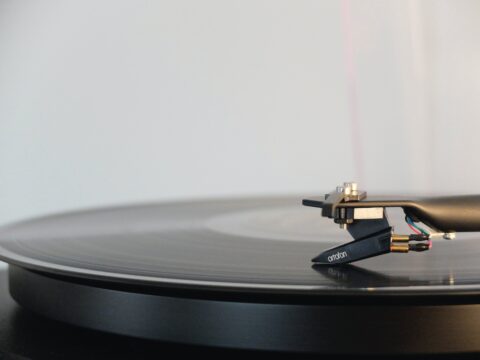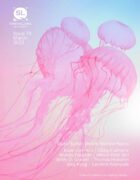Carrying me up Madison Avenue on her way to work, late late late, she is always late coming off her night shift at the hospital, she really shouldn’t have two jobs in her condition, but what’s a girl to do when her husband’s a drunk and their money’s running out because he can’t hold down a job and gambles whatever Granny sends them? She loves to work, and she doesn’t even mind me sloshing around her waist as she dodges cars and cabs, honks and horns, and men with leering eyes. Once a famous movie actor pulled her back from traffic and asked her up to his hotel for a drink, and she said, Can my husband come? and he said That’s not what I had in mind. And this life isn’t what she had in mind either when she moved here with her roommate Tinker Bell who wanted to be on Broadway and lived in a fourth-floor walk-up and ate tuna sandwiches from automats where the plates spun round and round and danced to the music of subways and cocktail parties and the clack clack clack of navy blue pumps on the sidewalk—New York in the late 1950s!—but now she’s married to my father, the handsome loser, and I’m on the way, baby number two, and you can’t be pregnant on Mad Ave, it’s not done, so when the acetone from the printer tray that her boss makes her dump in the ladies’ room sink splashes all over her green silk dress with the Peter Pan collar, she yells Goddamn son-of-a-bitch! and walks us out of the building.
And then I’m born.
The hospital room is bright and noisy but my mother’s mid-Atlantic chatter cuts through it like a boat in water, the voice that will become the soundtrack for my life, first she is mad at the doctor for inducing me—so he can get to his golf game!—but then she’s high on nitrous seeing Satan standing over her with a pitchfork laughing while they pull me out with forceps, and she prays Dear God let this baby be easier than the first, because when she gets home to their Upper East Side tenement my sister Mimi is wailing in an unchanged diaper, my father slumped in the corner, vomit and lipstick on his shirt. My mother puts me down and grabs a broom to go after the cockroaches streaming out of the cabinets—whack whack whack! Son-of-a-bitch!—killing them one by one because she can’t kill my father (she’s a good girl, voted St. Agnes at her Episcopal high school, where she stuffed herself with ice cream instead of sex). She screams at him, kicks him out so she can rearrange the furniture and paint murals of French café life—the life she should have had—and then wheels me and my sister out into the streets, through the music of Central Park, talking and talking, singing French and Spanish songs she learned in school, rolling her r’s and rounding her vowels, remembering the things she loved before my father, and sharing them with us: Offenbach and dancing the can-can, Sartre and Camus and Antoine de Saint-Exupéry and Pedro Calderón de la Barca—La vida es sueño!—these are the fuel she used to shed the world she came from, her admiral father and her Southern Belle mother, her sister in Waco with the burned face, these the fuel she will use to divorce my father and move us to 1970s Cambridge, Massachusetts, where she will stop wearing lipstick and start having orgasms, and finally get a life.
And even though she died two years ago, I can still remember how it felt to press my face into her soft chest and smell the smell that was only her, as she talked talked talked about boyfriends and music and art and anything she could think of, and at fifty-nine I am still riding on the waves of her words, sailing out beyond what the world wanted for her, what the world wants for any of us, to the place where what’s essential is invisible to the eye—because my mother gave me music.



 The core workshop of SmokeLong Fitness is all in writing, so you can take part from anywhere at anytime. We are excited about creating a supportive, consistent and structured environment for flash writers to work on their craft in a community. We are thrilled and proud to say that our workshop participants have won, placed, or been listed in every major flash competition. Community works.
The core workshop of SmokeLong Fitness is all in writing, so you can take part from anywhere at anytime. We are excited about creating a supportive, consistent and structured environment for flash writers to work on their craft in a community. We are thrilled and proud to say that our workshop participants have won, placed, or been listed in every major flash competition. Community works.